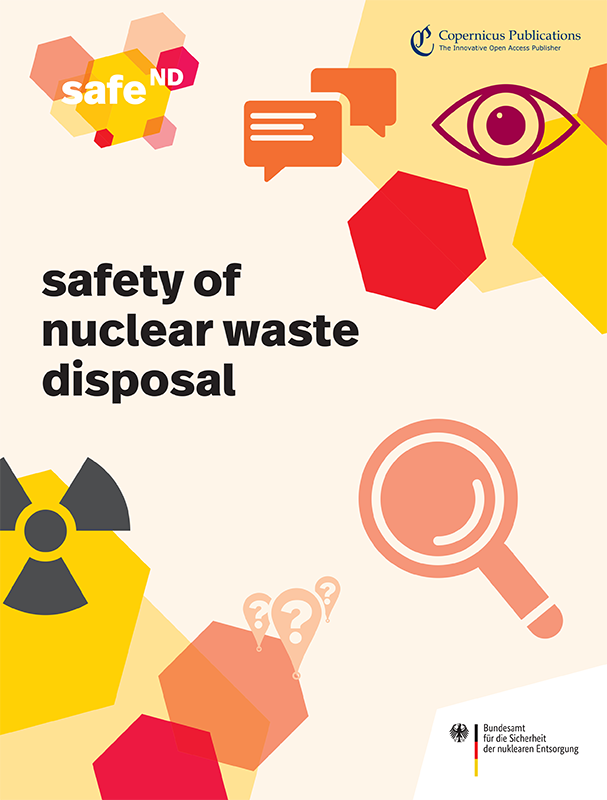From the decommissioning of nuclear facilities to intermediate storing and conditioning of radioactive waste as well as final disposal of this waste at great depths underground, research focusing on the safety of responsible nuclear disposal practices represents a task that no single scientific discipline is able to solve alone. Therefore, the Federal Office for the Safety of Nuclear Waste Management (BASE) has started Safety of Nuclear Waste Disposal (SaND), which is a publication platform for scientists working in all fields related to nuclear waste disposal. The journal topics span from technical questions to other themes like public participation in nuclear disposal projects, the culture of safety management, and risk communication. SaND will focus on both the fundamental and the practical aspects of safety.
Von der Stilllegung kerntechnischer Anlagen über die Zwischenlagerung und Konditionierung radioaktiver Abfälle bis hin zur tiefengeologischen Endlagerung: Die Forschung zur Sicherheit verantwortungsbewusster nuklearer Entsorgung stellt eine Aufgabe dar, die keine wissenschaftliche Disziplin allein lösen kann. Daher hat das Bundesamt für die Sicherheit der nuklearen Entsorgung (BASE) die Publikationsplattform Safety of Nuclear Waste Disposal (SaND) ins Leben gerufen. Sie ist ein digitaler Publikationsort, für alle Forscher:innen, die auf dem Gebiet der Nuklearentsorgung arbeiten. Das weitgefächerte Themenspektrum reicht von technischen Fragen über Themen der Öffentlichkeitsbeteiligung an Vorhaben zur nuklearen Entsorgung bis hin zur Sicherheitskultur und Risikokommunikation. Grundlagen-Themen haben hier genauso einen Platz wie praktische Aspekten der Sicherheit.
Notice on the current situation in Ukraine
To show our support for Ukraine, all fees for papers from authors (first or corresponding authors) affiliated to Ukrainian institutions are automatically waived, regardless if these papers are co-authored by scientists affiliated to Russian and/or Belarusian institutions. The only exception will be if the corresponding author or first contact (contractual partner of Copernicus) are from a Russian and/or Belarusian institution, in that case the APCs are not waived.
In accordance with current European restrictions, Copernicus Publications does not step into business relations with and issue APC-invoices (articles processing charges) to Russian and Belarusian institutions. The peer-review process and scientific exchange of our journals including preprint posting is not affected. However, these restrictions require that the first contact (contractual partner of Copernicus) has an affiliation and invoice address outside Russia or Belarus.

